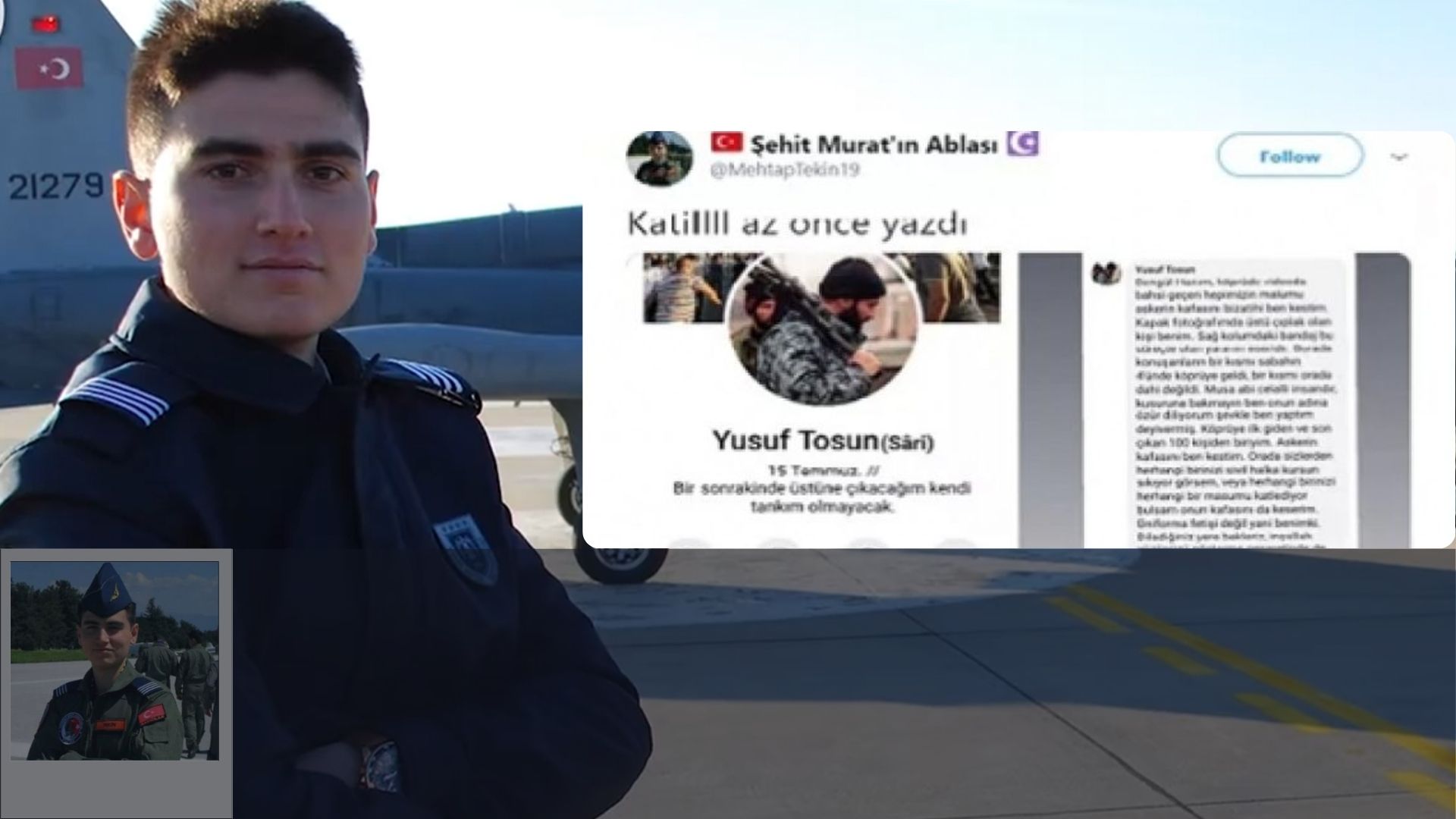A Legal Officer’s Stand for Justice Before the Court

In the aftermath of the July 15, 2016 coup attempt, the defense statement delivered by Personnel First Lieutenant Abdullah Şevki Güngör before the 17th High Criminal Court of Ankara, during the General Staff Headquarters Trial, holds significant importance from a legal and justice perspective. However, despite the detailed legalarguments presented in his defense and the clear lack of evidence, Güngör was sentenced to 17 counts of aggravated life imprisonment.
The Defendant – Legal Officerand First Lieutenant: Paying the Pricefor Doing His Duty?
Abdullah Şevki Güngör was serving at the General Staff Headquarters as a Legal Officer with the rank of Personnel First Lieutenant. During his service, Güngör was involved in legislative review projects, and on the night of the incident, he was on duty at the headquarters as the officer of the watch. In his defense, Güngör meticulously refuted the actions and charges brought againsthim, standing out with his education, legal expertise, and unwavering composure.
“These allegations can neither be substantiated by concrete evidencenor grounded in legal foundations,” stated Güngör, who proceeded to deliver a legal lecture to the court by citing the Turkish Penal Code (TCK), the Internal Service Law of the Turkish Armed Forces, and the Military Penal Code.
A Defense Laden with Lessons in Law
First Lieutenant Güngör,in his defense, thoroughly addressedlegal principles and the rules of military hierarchy in detail:
The Turkish Penal Code and the Legal Definition of a Coup Offense: Güngör emphasized that,under the TurkishPenal Code, the crime of coup d'étatrequires the elements of force and violence to be present.
“The offense of attempting a coup is defined as an intentional crime. The intentmust include elements of force and violence. However, I did not engage in any act involving force or violence. I did not fire a weapon, issue any threats, or give any orders,” he stated, thereby refuting the foundational basis of the accusations.
HierarchicalCommand and the Duty of Obedience: Güngör referred to Articles15 and 20 of the Military Code, stating that obedience to orders is mandatory within the military hierarchy.
Article 15: “Subordinates are obliged to show completetrust in their superiors and to obey them unconditionally and without reservation.”
Article 20: “Subordinatesmay not alter, delay, or question the orders of their superiors.”
Güngör stated, “I had neitherthe authority nor the means to questionthe legitimacy of the orders given by my superiors. I acted in reliance on my commanding officers,” thereby underscoring the rigid rules of the military system.
The Principle of Individual CriminalResponsibility: Emphasizing the principle of individual criminal responsibility in his defense, Güngör stated, “There is no evidence indicating that I actively participated in the coup attempt.” “Holding a person accountable for all crimes merely based on their presence at the scene is incompatible with the fundamental principles of law,” he said.
Insufficiency of Evidence: Güngör stated that the indictment contained no concrete evidence against him. He stated that the surveillance footage showed him only walking around the sentry post and contained no evidence of him engagingin any unlawful actions.
A Call for JusticeThrough the Law to the Court Panel
In his defense, First Lieutenant Güngör also referred to the rulings of the 16th Criminal Chamber of the Court of Cassation regarding the definition of membership in a criminal organization, stating: “For an individual to be considered a member of an organization, it must be definitively proven that they knowingly and willingly joined it.” Throughout this trial, not a single piece of evidence has been presented to demonstrate any connection between me and the organization,” he said. He also reminded the court that the principle of “in dubio pro reo” — that the benefit of the doubt belongs to the defendant — is a fundamental tenet of universallaw, stating: “When all the evidence is based on mere suspicion, these sentences cannot be justified in the name of justice.”
The Outcome of the Legal Lesson: Aggravated Life Imprisonment
Despite Personnel First Lieutenant Güngör’s detailed legal arguments, the court panel sentenced Abdullah Şevki Güngör to 17 counts of aggravated life imprisonment. When examined in light of legal principles and the concept of justice, the verdict stands as a dark stain in the pages of judicial history.
The following words, which Güngör repeatedly emphasized in his defense, strike a blow to the conscience: “This kind of verdict does not only convict me — it also condemns the universal principles of law.”
A Legal Officerand the Pursuit of Justice
Throughout his defense, Abdullah Şevki Güngör sought justice through the law and will be remembered not only as a legal officer, but also as a victim of injustice. “I was merely fulfilling my duty,” said Güngör, emphasizing that although his meticulously prepared defense — delivered with the rigor of a legal professional — ultimately carried no weight in the outcomeof the trial, it shouldnonetheless be seen as a meaningful effortin the name of justice.
Like many other unlawful prosecutions and unjust verdicts following the events of July 15, theconviction of PersonnelFirst Lieutenant AbdullahŞevki Güngör has, regrettably, gone down in history as a dark stain.
Serdar Türkoğlu
Source
Defense statement of Abdullah Şevki Güngör, recordedvia SEGBİS (Audioand Video Information System),during the hearingheld on 27 June 2018 within the scope of case file No. 2017/109 of the Ankara 17th High Criminal Court.




